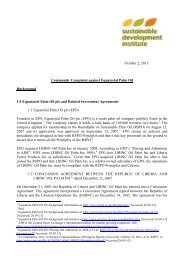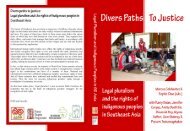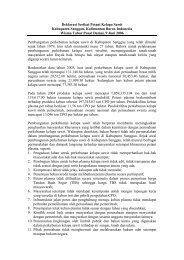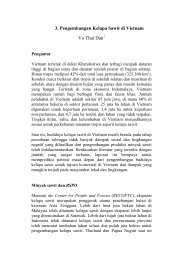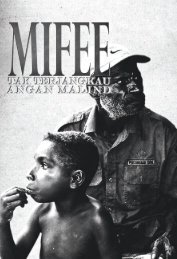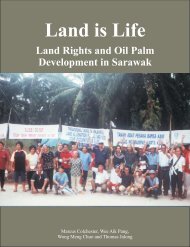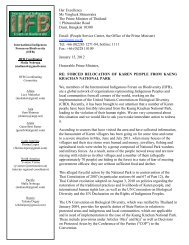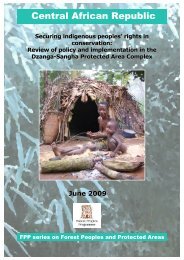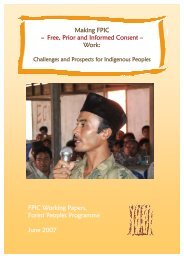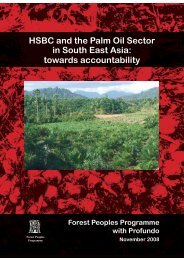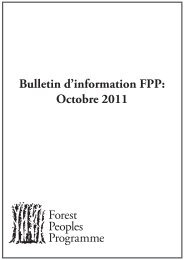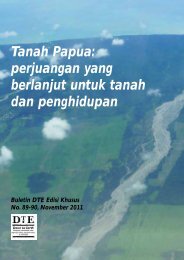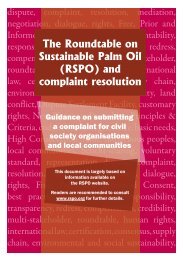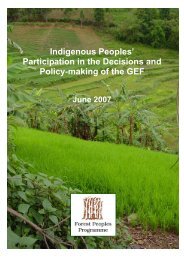The Upper Caura, Venezuela - Forest Peoples Programme
The Upper Caura, Venezuela - Forest Peoples Programme
The Upper Caura, Venezuela - Forest Peoples Programme
Create successful ePaper yourself
Turn your PDF publications into a flip-book with our unique Google optimized e-Paper software.
Protecting and encouraging customary use of biological resources: <strong>The</strong> <strong>Upper</strong> <strong>Caura</strong>, <strong>Venezuela</strong>_________________________________________________________________________________________However, among the Sanema, the division of labour is not strict and hunting may be theonly activity which females never engage in. <strong>The</strong> contribution of labour of Sanema men andwomen to the subsistence economy is about equal.Among the Ye’kwana, the division of labour is somewhat stricter. Ye’kwana men play a verylimited role weeding and harvesting food from gardens, which is considered a woman’sdomain. Whereas it is common for Sanema married couples to share the work load in thegardens, Ye’kwana women tend to work in their gardens in large all female groups and theirself-esteem and value in society are expressed through their productiveness in providingcassava bread, starchy gruels and fermented drinks (yarake). Seasonal rituals, from whichmen are excluded, are held by Ye’kwana women to celebrate the planting of new gardens.<strong>The</strong> subsistence economies of both the Ye’kwana and the Sanema are for the most part thediscrete affairs of individual households or hearth groups but labour exchanges betweenfamily units are based on generalised reciprocity. Collective activities such as fish poisoningand larger hunts are shared endeavours. Other onerous tasks such as clearing gardens and,among the Ye’kwana, house construction are also carried out communally but in theYe’kwana case those working for the house-owner or the communal dwelling are rewardedwith regular beverages for their efforts. Only when goods, such as canoes, are produced forsale or barter are labour exchanges more carefully reckoned and paid for through direct ordelayed reciprocity.Norms of sharing: wealth and redistribution<strong>The</strong> autonomy of households in terms of production is however complemented by a majorsocial emphasis on the sharing of food. Indeed the norm of food-sharing can be consideredone of the fundamental values of both Sanema and Ye’kwana societies.Sanema norms define how game is butchered and shared. Specific, named cuts are customarilyoffered to kin and affines in defined categories (Shimadawoche, 1983)23



